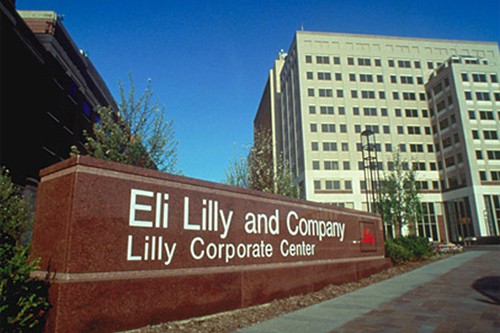
Advanced pancreatic cancer is notoriously hard to treat, and Eli Lilly’s pegilodecakin has joined the list of drugs unable to improve survival compared to standard chemotherapy.
In the SEQUOIA trial, pegilodecakin was added to the widely-used FOLFOX regimen (folinic acid, 5-fluorouracil and oxaliplatin) as second-line therapy for metastatic pancreatic cancer patients who had progressed after first-line gemcitabine-based treatment.
Lilly has reported top-line results from the trial which show that pegilodecakin wasn’t able to improve overall survival (OS) over FOLFOX given alone. The pegylated formulation of interleukin-10 was the main asset in Lilly’s $1.6bn all-cash acquisition of Armo Biosciences last year.
It’s another big disappointment for patients with metastatic pancreatic cancer, a particularly deadly type that according to Lilly has a five-year survival rate of just 3%.
Pancreatic cancer is currently the seventh leading cause of cancer death worldwide, and number three in the US, having overtaken breast cancer a few years ago. It is poised to overtake colorectal cancer to become the second leading cause of cancer-related deaths in the US, according to the Pancreatic Cancer Action Network (PanCAN).
That rise up the ranks is partly because treatments for other cancer types are improving, but also because rates of obesity and diabetes – which raise the risk of going on to develop pancreatic cancer – are on the increase.
“More than 56,700 Americans – mothers, daughters, fathers, sons, colleagues and friends – will be diagnosed with pancreatic cancer this year alone,” said PanCAN chief executive Julie Fleshman.
“Because this is an aggressive disease and the current scope of treatment options is limited, there remains an urgent need for meaningful solutions to improve outcomes for pancreatic cancer patients.”
While it looks like the end of the road for pegilodecakin in pancreatic cancer, Lilly is still hopeful that its investment in the drug will pay off in other cancer types. Earlier-stage trials are ongoing in other advanced solid tumours including melanoma, non-small cell lung cancer (NSCLC) and renal cell carcinoma (RCC).
In particular, the company has two phase 2 trials – CYPRESS 1 and 2 – looking at the combination of pegilodecakin with PD-1 checkpoint inhibitors in NSCLC with results due next year.
High concentrations of IL-10 are thought to activate an immune response against cancer cells and – as both IL-10 receptors and PD-1 are expressed on CD8+ T lymphocytes – the hope is that pegilodecakin will increase the activity of checkpoint inhibitors.
Pancreatic cancer was always going to be a tough challenge, but the setback is a bitter blow for Lilly as it tries to rebuild its once lofty position in the oncology market, latterly eclipsed by the stellar growth of checkpoint inhibitors from the likes of Merck & Co/MSD and Bristol-Myers Squibb.
Lilly’s presence in cancer is led by lung cancer chemotherapy drug Alimta (pemetrexed), which brought in $2.1bn in sales last year down from a peak of around $2.8bn in 2014 as a result of patent expirations.
It also sells gastrointestinal cancer antibodies Erbitux (cetuximab) and recently launched Cyramza (ramucirumab), but was a late entrant into the cancer immunotherapy sector, and the Armo deal is viewed as a catch-up play.




